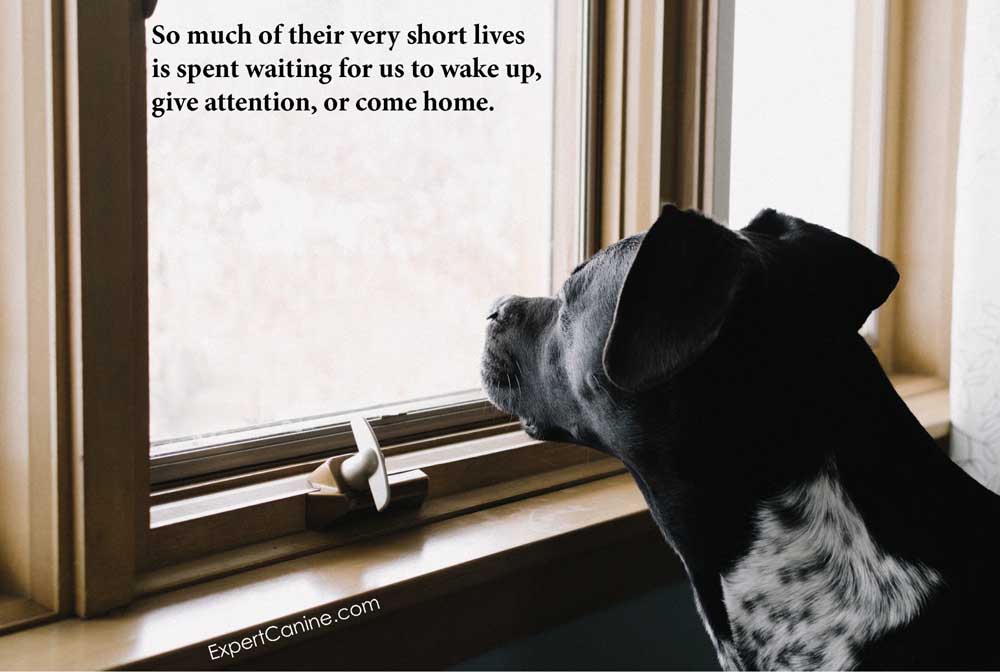Canine Corner: Giving Thanks to Our Dogs
Published 1:15 pm Monday, November 25, 2019

- Giving thanks for our dogs
Before I had a multidog household, I used to send gratitude cards to people during the holiday season. Now I look for ways to express gratitude to my dogs.
Often, training sessions with high value food rewards make them very happy. But training is as much for us as it is for them.
Here are a few ideas for expressing gratitude to and for our dogs.
Let them take you for walks. The main joy dogs get from leash walks is exploring the world via sniffing, so if dogs aren’t allowed to sniff, or are punished for sniffing, they’re not getting much from their walks. Tightening that leash and pulling your dog away from whatever she might be sniffing during a walk is akin to your friend or spouse grabbing your arm and pulling you away from reading your most important emails, Facebook updates, or Instagram posts.
Some dogs do not enjoy walks at all, whether due to fears, pain, or other health reasons. They shouldn’t have to go on walks if walks are aversive to them. Instead, set up seek & sniff opportunities in your home or yard. You can hide aromatic foods in grass, shrubs, and leaves. Making sure first that the flora in your yard isn’t dog-toxic, stick dabs of xylitol-free, sugar-free peanut butter, cream cheese, or unseasoned pates on leaves, rocks, and elsewhere. You might have to guide them to the hidden foods at first, then eventually add a “find” or “seek” cue to let them know the game is on. On the other hand, because dogs’ olfactory systems are exponentially more powerful and sensitive than ours, it’s important to protect them from certain other scents. Cleansers, detergents, paints, hairspray and other aerosol products, perfumes, lotions, and essential oils are just a few of the many items that overwhelm and attack your dog’s sense of smell.
Play with them. Or arrange safe play dates with their favorite doggy pals, checking regularly to ensure all playmates are consenting to the interactions. If your dog’s play skills are iffy, you can teach him to self-inhibit via a series of rewarded call-aways from and returns to play before arousal escalates. If your dog doesn’t like other dogs, don’t insist on dog-dog play but instead provide a securely fenced area where he can run and play safely with you.
Some people whose dogs have rock-solid recall — and are not bite risks nor surrounded by bite risks — give their dogs off leash exercise opportunities. Running on the beach or other protected areas without the danger of vehicles or wild animals can be highly enriching. If your dog doesn’t have a super-reliable recall, however, it’s crucial to achieve that first. Reliable recall is best trained and maintained with aromatic, high value human food rewards for coming when called. There are very specific rules to training recall and to ensuring it is maintained permanently. A well-qualified, humane, certified trainer or behavior consultant can teach you the intricacies.
Spend time with them; both quantity and quality count. We humans might figure that our dogs being home without us for 8 hours a day is no big deal. But our dogs live in captivity—however caring this captivity may be, they nevertheless cannot seek human companionship elsewhere when we leave. A huge portion of their short lives is spent waiting for us to come home. Because dogs are social animals, too much alone time can be detrimental. So can negatively charged human time such as when we are angry, frustrated, scared, unhappy, or preoccupied. After all, dogs are very sensitive to human emotions, facial expressions, and stress. They can even smell a rise in stress hormones in our blood. Got no reason to be happy? Your dog is one great reason.
Last but perhaps foremost, protect your dog from the distress and heartbreak of being suddenly alone — that is, without you — permanently. If you find heartbreaking the stories and photos of dogs taken to shelters by the only family they know, imagine how those dogs must feel. There are many ways to avoid this. Suggestions can be found in my previous articles.
Devotion to our dogs equal to or greater than their reliance on us, wrapped in various packages like those outlined above, may indeed be the greatest gift. So when they come to your side at the holiday dinner table, longing for some of that novel, aromatic fare? Whether you assent to their pleadings or not, remember to respond in ways that show them your gratitude.
Rain Jordan, CBCC-KA, KPA CTP, is a certified canine behavior and training professional. Visit her at www.expertcanine.com.





